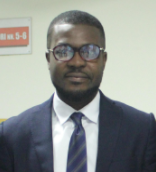Nationality: Ghanaian
Thesis titles: A comparative study on the effect of African immigrant’s social capital and Non-African immigrant’s social capital on urban neighbourhood Change, case of Germany (Frankfurt), and Czech (Brno)
Begun: October 2020
Qualifications:
2020 - 2024 PhD candidate, Charles University - Czechia
2016 - 2019 MSc in Economics and Entrepreneurship, University of Cassino and Southern Lazio - Italy
2010 - 2014 BSc in Planning, University for Development Studies - Ghana
2008 - 2009 Diploma in Cisco Networking, Koforidua Polytechnic - Ghana
Awards and grants:
Aside my qualification awards received, I have also received the following certificates all from World Bank Group;
Sustainable Urban Land Use Planning, Policies for Growth, and Frontiers in Development Policy certificates (2015).
Research:
Different strands of literature suggest that social capital decreases with expected mobility emphasising on out-migration and human capital demand backwash effect (Glaeser et al. 2008). I think this assertion perhaps failed to consider the replacing labour dynamics of immigrants. Literature in this study area is broadly categorised into two schools of thoughts.
One school of thought argues that the heterogeneity of individuals may affect their behaviour of migration, but the direction of this impact is vague. For example, the propensity of people with high human capital to invest more in social capital will make these people less likely to migrate while their tendency to invest more in human capital will increase the likelihood of migration.
Inferring from multiple equilibria models or school of thought, on the other hand, this in practice perhaps suggests that immigration doesn’t necessarily translate into increased social capital but rather in human capital.
Based on the above credence or expositions, this research proposal seeks to explore “A comparative study on the effect of African immigrant’s social capital and Non-African immigrant’s social capital on urban neighbourhood Change, case of Germany (Frankfurt), and Czech (Brno)"
Publications/Articles:
"Bridges to Studying: Educational Migrationin the Scope of Political Transformation in Post Covid 19 Pandemic in Europe" (2021), DOI: 10.22363/2313-1438-2021-23-1-
Immigration and economic prosperity in Western Europe, case of Germany, Norway and Sweden (2019)
Genetically Modified Foods and Its implications (2015)
Livelihood Diversification in Peri-Urban Communities: The case of Bamaho in Wa municipality’ in the Western part of Ghana (2014)
Conference contributions:
The World Bank Group (2015)
In-service training for Town and Country Planners on how to use ArcGIS in Street Naming/Property addressing system (2015)
External activities
I was the assistant leader for a programme dubbed TTFPP which was organised by the University for Development Studies in Kauk community (Upper East Region), Ghana (2011-2012). And only to mention a few, became the secretary for the statutory planning committee of Birim-South District (2014-2015) in Ghana as well as a key player in the Town and Country Planning Department of the aforementioned District.

